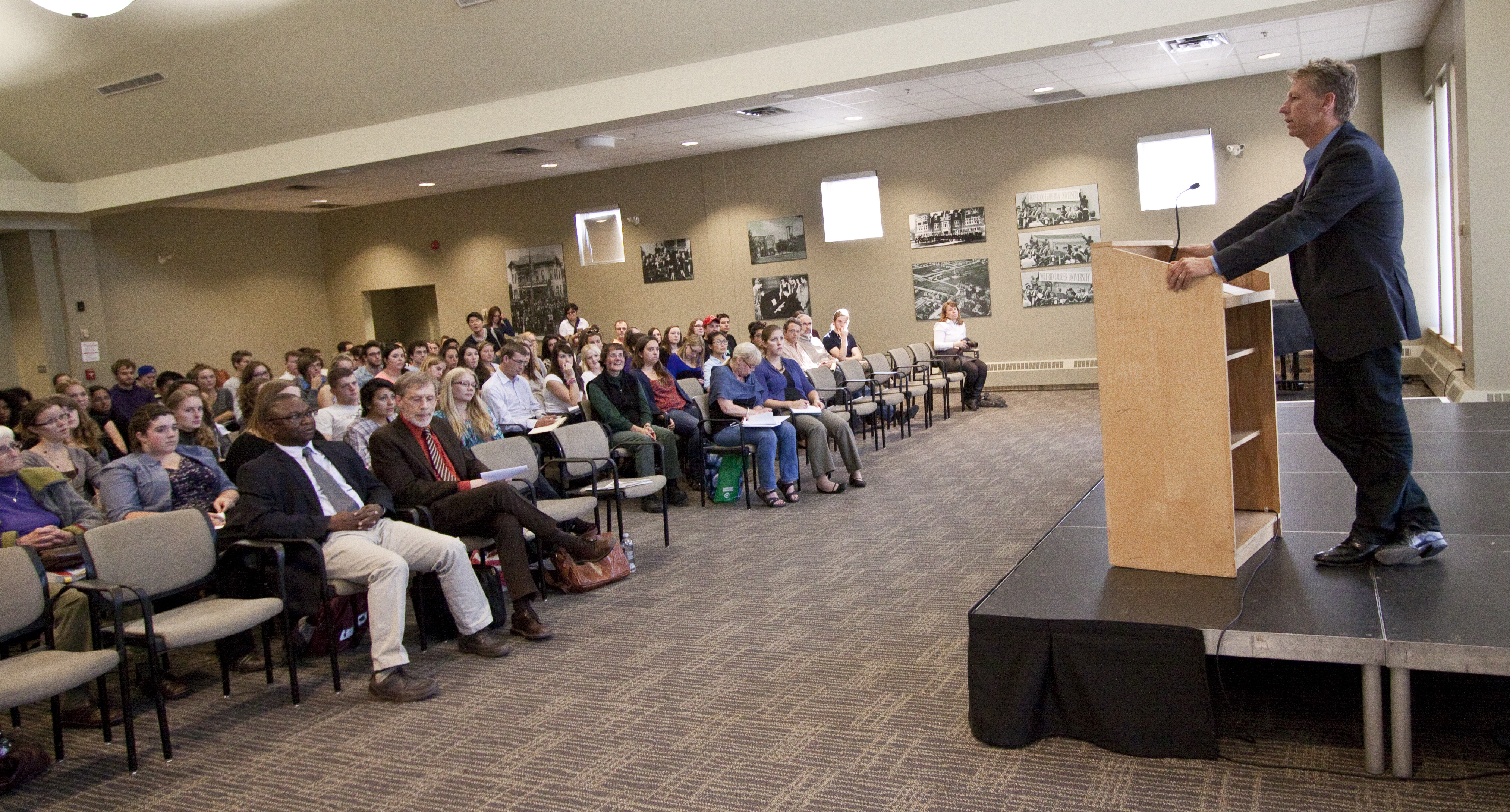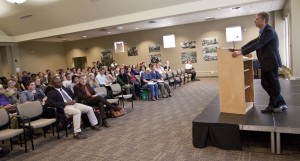CIGI Chair in Global Health Dr. James Orbinski speaks at Laurier for first time since moving to Waterloo


Last Thursday, as part of Laurier’s Global Studies speaker series, James Orbinski spoke at Laurier for the first time since moving to Waterloo earlier in September to take a position at the Centre for International Governance Innovation (CIGI) as Chair in Global Health.
Orbinski introduced his discussion of the principles of equity, revolutionary ideas and careful thinking in global health while also advising Laurier students to “take your academic work as seriously as you possibly can… [And] do with it the most that you can possibly do over the course of your lives.”
He then explained that humanity is also in the midst of many converging crises, mentioning supply issues in food and fuel as well as the crises of governance and finance.
“We’ve become our own geological epoch, the anthropocene where human pressures on the planet are at risk of triggering abrupt and irreversible changes with potentially catastrophic outcomes for the ecosystem and for human societies that live within [it].”
The world is now facing changes because human societies have evolved to become more interdependent, which means choices at local levels have increasingly begun to have effects at the global level.
“Human suffering does not take place in a political vacuum or without causes and conditions,” said Orbinski. “Seventeen years ago when the genocide [in Rwanda] ended there was no such thing as an international criminal court.”
Orbinski, who witnessed the 1994 mass murders, explained that “like humanitarianism, politics is an imperfect human project… we believe the illusion that it is perfect or must be perfect.”
When the International Criminal Court (ICC) developed in 2002, it was the result of popular outrage at the failure of government policy, not because of some miraculous bureaucracy.
Since then the institution has issued arrest warrants and completed several convictions, for example, Orbinski mentioned the warrant for President Omar al-Bashir of Sudan.
For Orbinski, the realization that good intentions were not enough gave momentum to initiatives such as the Access to Essential Medicines Campaign, which he launched.
“The campaign was a challenge to failing politics to examine the international political economy of the pharmaceutical market,” noted Orbinski. “Within two years we drove the global market price down by pooling our purchasing power. We drove the price down to less than $200 US for generic versions of patented drugs that would cost $13,000.”
Because of examples such as this there are more than 6 million people on full treatment for HIV around the world.
Orbinski concluded by addressing climate issues such as those facing modern Africa. He pointed to the stress that will be felt as crop yields are expected to be cut because of lack of water.



